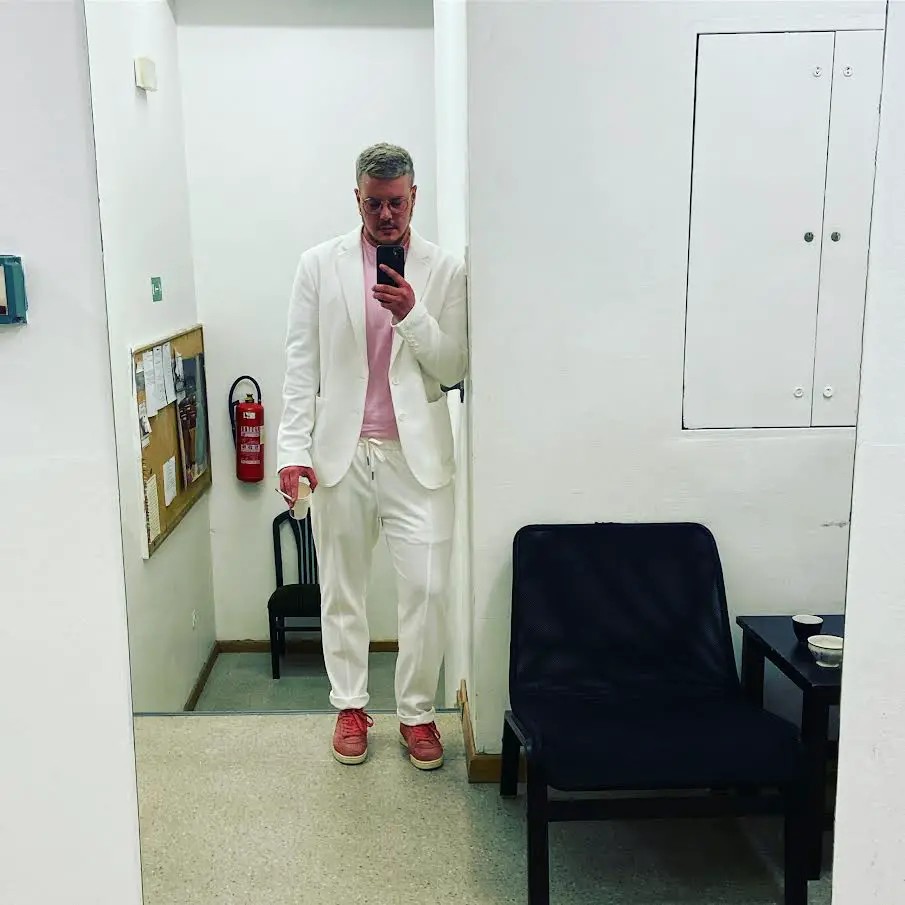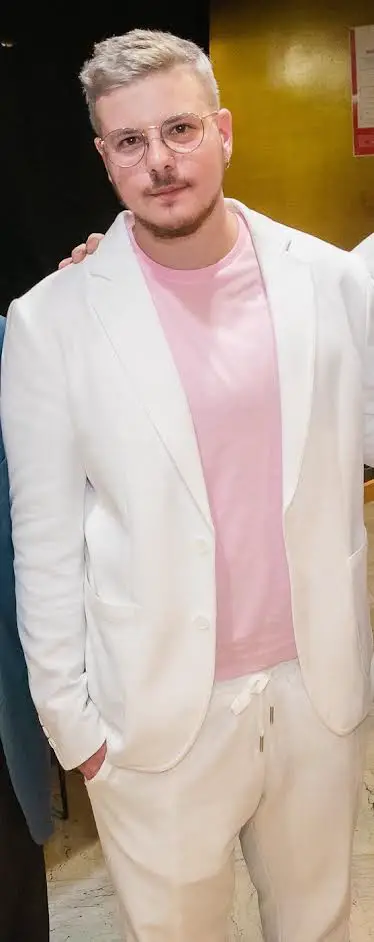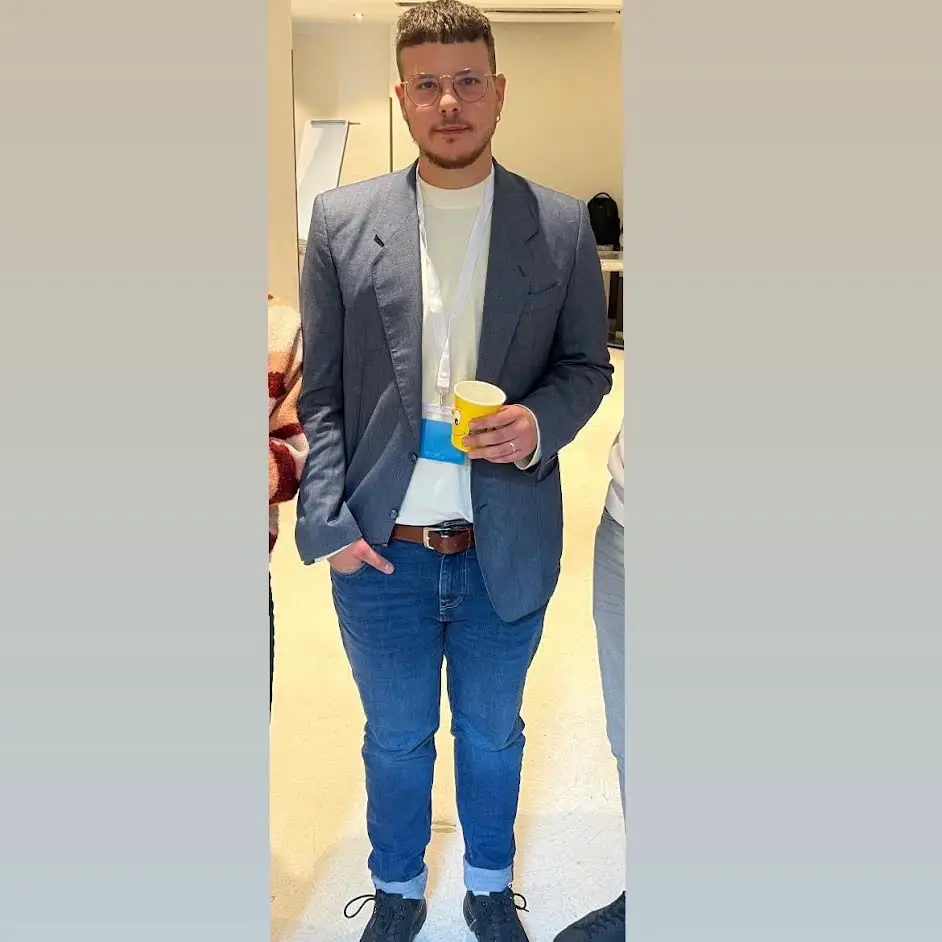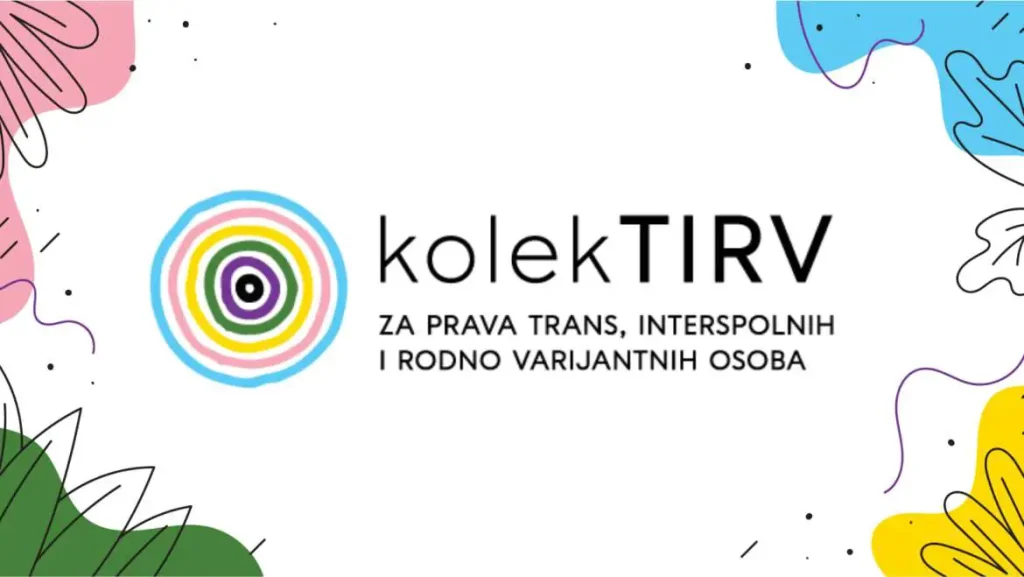May 11, 2023 – Croatia is a conservative country, which can be intimidating for trans, intersex and gender-variant persons. A look at the overall situation, including official systems in place, through the eyes of Espi, a member of KolekTIRV, an NGO in Zagreb advocating for the rights of trans, intersex and gender-variant persons.
You are a member of KolekTIRV, an NGO advocating for the rights of for trans, intersex, and gender-variant persons. Tell us firstly about how you got started, and about the work you do?
I took part in civic actions as an activist, after graduating from college, the TIRV had a job offer and so I applied. Our hierarchy isn’t vertical, so I wouldn’t particularly want to spend too much talking about this position as such, but instead about the problems we deal with. Recently, advocacy, legal protection and psychological support are the main pillars of our work, because in the public space there’s an increasing level of attack on our rights and transphobia is rampant in politics. All of this has a direct consequence on the mental health of transgender people.

How big is the community you are helping?
It’s honestly impossible to provide an exact number of transgender people in Croatia because some transgender people will never come out, and some people don’t need to undergo legal or medical transition(s), so there are no statistics on the precise amount of transgender people living in this country.
The Ministry of Health, i.e. the National Health Council, which gives the final approval for a person to change their gender in their personal documents has kept such documents since 2015. Since that time, there’s been a Rulebook (Pravilnik) which allows for the possibility for a person to have their gender altered in their personal documents. That has information that about 200 people in Croatia have made this change.
The Croatian Institute of Public Health has data that 0.005% of the population are transgender, and according to the literature, numbers a thousand times higher would be expected, meaning that around 0.1-2% of the population is expected to be transgender.
There’s also data on minor transgender persons that don’t conflict with other data. Experts from the List of Experts of the Ministry of Health who are responsible for providing healthcare for transgender children and young people have provided official data on 106 minors who have contacted them since the Ordinance came into existence due to suspicion of gender dysphoria. Seventy of those individuals have been confirmed to have gender dysphoria, that is, they’ve been confirmed to be transgender, and 41 of them are on hormone therapy. None of these people are younger than sixteen, so the information that is currently circulating in the public space is inaccurate and false.

How do you raise awareness for young people about these issues in Croatia?
Through the education of people within institutions that deal with upbringing and education, as well as through media appearances where we try to approach the situation with the aim of raising the level of general awareness and bringing the problems we face closer to young people. Primarily, however, the focus is on the adults who are actually raising these young people.
Croatia is quite a conservative country in many respects. What obstacles have you encountered in your professional work and daily life?
Professionally speaking, it’s been known to happen that we have to spend all of our resources on maintaining our already earned rights, which, within political campaigns or building the careers of politicians, are used as a tool that these same actors use to score points in their own careers. Apart from the constant feeling of Sisyphean-esque work, which actually isn’t the case, because when we look back over the last decade, a lot has happened in the field of trans rights and we’ve progressed as a society, I personally encounter transphobia, but I no longer attach too much importance to it. I learned that people are afraid of things they don’t understand, so I try to educate people as much as possible and bring people closer to transgenderism.
There are some who would say that we live in a woke community, and that youngsters being transgender etc is a trend rather than a real thing. What are your thoughts on this?
I don’t think anything about that, except that it was the same sentiment with the LGBT+ community just ten years ago. Any visibility in the society of a community is recognised as a “trend” at the very beginning, because we can’t cope with new knowledge and we generally have difficulty adapting as people. I understand it from that perspective, especially when the public space is overflowing with transphobia. We’re an example of good practice, there’s been no increase in transgenderism among young people, there’s finally a society in which young people can get out of gender-normative and heteronormative frameworks and become who they are through freedom, and not through coercion of any kind.

How does Croatia’s system protect the community you serve, and is it very different from other countries in Europe?
The Law on State Registers regulates the possibility of changing gender designation in official/personal documents. What determines the procedure for changing the gender designation in documents is defined by the Rulebook on the method of collecting medical documentation and determining the conditions and assumptions for the changing of gender or living in a different gender identity.
Along with that Rulebook, Professional guidelines were issued for the preparation of opinions of healthcare professionals and psychologists on determining the conditions and assumptions for gender alteration and living in a different gender identity, as well as a list of experts who have experience working with transgender individuals.
The standards of healthcare of transgender and gender non-normative persons are issued by Wpath – the World Professional Organisation for the Health of Transgender Persons. It is the seventh edition, published back in 2012, according to which Croatia’s Regulations and Guidelines were made. The eighth edition was published in 2022 and is currently in the process of being translated into Croatian.
Personal name changes are regulated by the Personal Name Act, and the Anti-Discrimination Act protects people from discrimination based on gender identity and gender expression. The Anti-Discrimination Act also ensures the protection and promotion of equality as the highest value of the constitutional order of the Republic of Croatia.
According to the recommendation of the European Union, most EU member states have the rights of transgender persons regulated by law, and for now, Croatia only has the Ordinance of the Ministry of Health. In addition to that, the European Court of Human Rights has established that EU member states must provide people with gender dysphoria access to medical procedures for gender adjustment and that the costs incurred should be paid out by their health insurance, which isn’t yet regulated in this country, and the issue of gender identity is not and cannot be treated as a mere aesthetic question.
If you had a message for politicians to bring effective change, what would it be?
Certainly the first and most basic thing is that they don’t spread transphobia and don’t use us for political purposes with false information that they then market to the public. What is certainly important, but not only for the trans community, is accessible public healthcare, which we still have on a public basis, and which is unfortunately increasingly being privatised. That affects everyone, pensioners, those who are unwell, the trans community, literally anyone and everyone, having public (socialised) healthcare is exactly what we should be proud of as a society, healthcare is for everyone, not just for those who can afford to pay for it. There definitely needs to be a shift in the treatment of healthcare professionals so that they feel they can stay here in Croatia and are satisfied with their work. The same applies to professors and people who work in educational institutions. Only when we have that can we deal with other things. The thing we’d want would certainly be the introduction of a Law on Gender Identity, which would guarantee transgender people the right to free public healthcare, because as I mentioned above, our health problems are not of a mere aesthetic nature.
If you had a message for young people experiencing gender issues, what would it be?
Speaking from my own experience, I can safely say that the most important thing is to surround yourself with people who accept you, create your own bubble of a world where happiness happens, the same thing that all people in the world do in order to make their lives meaningful. In addition, I needed patience, I waited for the moment when I felt safe enough to come out, but this isn’t my recommendation for everyone because sometimes it’s impossible to wait that long for “life to start”. It’s important that people seek psychological support for everything they face and they should also allow themselves to feel their emotions in the process.
Making the decision to transition is not one to take lightly, and the process is quite rigorous in Croatia. Can you tell us more about it?
Certainly, but not all transgender people need a legal and medical transition. That’s the choice of each individual themselves. Such decisions require really, really getting to know yourself, your body, and then giving it time. Some trans people immediately know everything they need, some need a longer process to make their decisions, but it goes without saying that here in Croatia, that process is a long one. There’s a List of experts to whom a person turns, which includes psychological and psychiatric expertise, endocrinological health support, the Centre for Social Care, which gives an opinion on the conditions in which the transition takes place, and surgeons who do the work operatively. Such a process lasts at least a year and depending on the person’s needs, it is reported to the persons on the List.
What is your relationship with schools and educating kids on these issues?
We’re focused on educating the staff themselves, not the children. Of course, sometimes young people come to our education sessions and some of those sessions are aimed at them, but our main educational goal is that people who work in the system of working with children know what they’re doing and how they can properly respect the children in these situations.
If someone is experiencing gender issues and wants to reach out, what kind of support can you offer?
We can offer peer support where, as trans people, we can help people along their way and do deal with their problems, we can offer psychological support in which a psychologist talks to people, legal support that is aimed at solving the legal processes that people face as a result the law not being followed, discrimination and transphobia. We also provide information about procedures and opportunities in Croatia, and we also offer a safe space for socialising with other people from the community.
You can learn more about the work of KolekTIRV on their official website.










